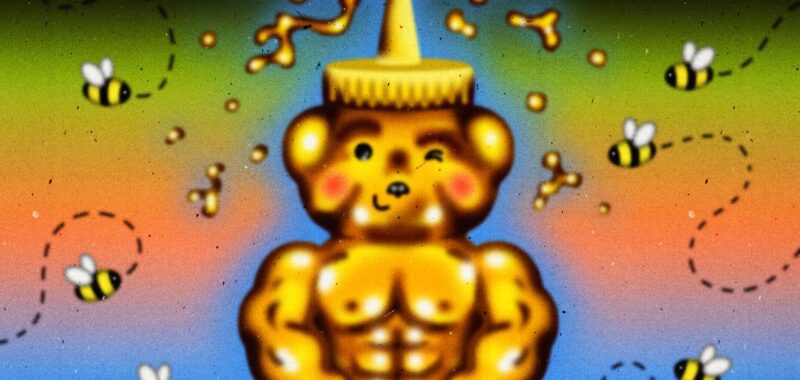The slower absorption rate impacts health in a few different ways. There is some scientific evidence showing that honey causes less weight gain than sugar. Honey can also improve lipid profiles by decreasing cholesterol and triglyceride levels and influence appetite-regulating hormones. “Since you’re not throwing as much sugar into cells faster than they can deal with it, you aren’t storing as much fat as when you eat sugar,” Dr. Benardot says. The antioxidants in honey can also help decrease inflammation, which is often high in people with obesity.
(Why is honey absorbed into the blood more slowly than sugar? Here’s a quick chemistry lesson. Table sugar is half fructose, half glucose. Honey is 40% fructose, 30% glucose, and 17% water, with the remaining 13% a mix of other sugars, carbs, and nutrients. Honey also contains trehalose, an enzyme that’s not present in sugar. The trehalose, Dr. Benardot explains, releases glucose into the bloodstream at a slower rate than table sugar.)
While honey does have benefits, beware of weight-loss fads like the honey diet, which involves replacing all sugar with honey, eliminating potatoes and grains, eating unlimited veggies but only two servings of fruit a day, getting protein with every meal, and replacing simple (or refined) carbs with complex carbs. “Substituting carbohydrates with protein doesn’t work because this requires that much of the consumed protein be used to satisfy the carbohydrate energy requirement,” Dr. Benardot says. (Can we stop giving carbs a bad rap already?) In general, Dr. Benardot says, the best diet is a varied one.
In deciding whether to incorporate honey into your pre-workout routine, it’s important to keep the differing absorption rates of honey and sugar in mind. Sugar will give you quick energy, Dr. Benardot says. That’s why a lot of long-distance runners snack on gummy bears or energy gels, both of which typically contain sugar.
But Dr. Benardot says it can be beneficial to eat a spoonful of honey (or a meal that includes it) about 1.5 hours before working out for more sustained energy. The fructose and glucose in honey are converted into glycogen in the liver, and glycogen is the most important energy source during exercise, especially high-intensity exercise.
What about throwing glycerol powder into the mix, as the creator of the “honey pump cocktail” does? Dr. Benardot says that this is only beneficial if your sweat rate is going to be super high, as it would be, for example, on a run in the summer afternoon heat. This is because glycerol helps the body hold onto water longer.
And if you want to have salt with your spoonful of honey, Dr. Benardot doesn’t see a problem with it—but he recommends just a sprinkle. “Roughly 100 milligrams of salt is enough. If you’re working out in a hot environment, 200 milligrams is okay,” he says. “You don’t want to overdo the salt because if you have too much, you can have too much fluid in your blood, which raises blood pressure.”
The only question left is whether you should become a beekeeper. If you do, Lombard recommends learning best practices from a local beekeeping organization, so you don’t do more harm than good to those precious bees.

